Italy's Matteo Renzi buffeted on all fronts
- Published
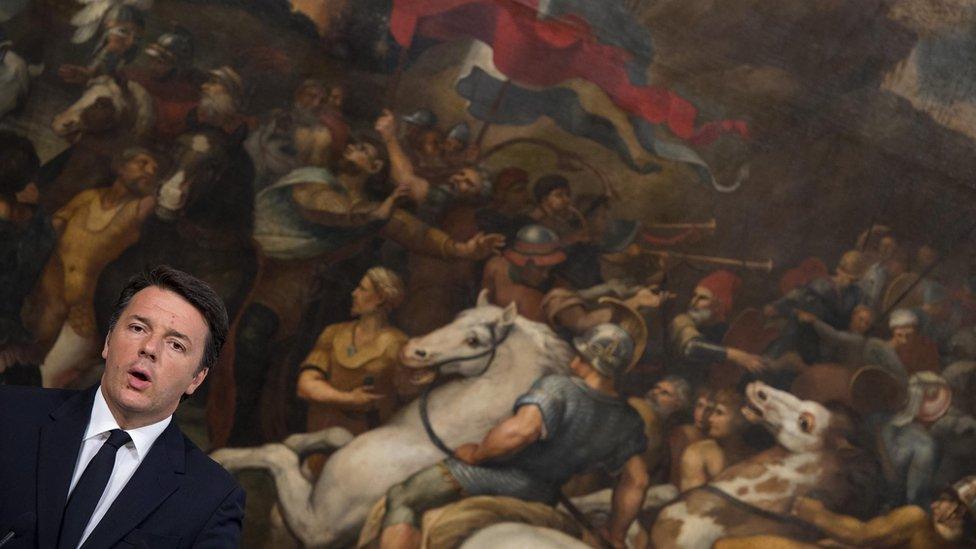
Matteo Renzi is facing months of domestic challenges, including a referendum that could bring him down
Matteo Renzi's nickname is Il Rottamatore - the Demolition Man.
Italy's prime minister wears the name proudly, advertising his desire to tear through the mouldering institutions of the Italian state. But this year, his main target for demolition may, by accident, be himself.
Mr Renzi finds himself neck-high in a series of problems, some of them entirely self-inflicted.

Referendum threat
He has called a referendum later this year to cut the powers of the Italian Senate as part of a series of planned constitutional reforms.
He aims to streamline the Italian parliament, cut costs and give Italy more stable government. Parliament's two chambers weigh in with a combined 945 members, the largest elected legislature in Europe.
The prime minister has promised to resign if he loses the vote. What was once a rather hypothetical threat suddenly looks more real.

Mr Renzi made constitutional reform a platform for his leadership in 2014, but it could come back to hurt him
Mr Renzi becomes the second Western European prime minister this year to put his fate on the line in a referendum that he himself has called.
David Cameron's recent referendum defeat in the UK shows that energetic leadership alone isn't enough to win over voters fed up of losing out.

Rise of protest party
Matteo Renzi came to power in February 2014.
During his first two years, he governed relatively easily, by commanding the centre ground of Italian politics. But Italy now follows the rest of Europe in seeing its centre slip away.
In recent weeks, the populist Five Star movement has taken chunks of territory from Mr Renzi's centre-left Democratic Party.
In June, Five Star won the mayoralties of Rome and Turin.

Virginia Raggi has become Rome's first woman mayor, winning the vote by a landslide for Five Star
This week, for the first time, opinion polls show that Five Star is the most popular party in Italy.
The movement, founded in 2009 by comedian Beppe Grillo, has won support for its anti-establishment, populist views.
Its critics accuse it of being an ad hoc protest movement which has yet to present a coherent plan for government. However, it has caught a degree of referendum fever and has called for a vote on leaving the eurozone.

Bad bank loans
A general election isn't expected until 2018.
But Italy may struggle to reach that point in good shape.
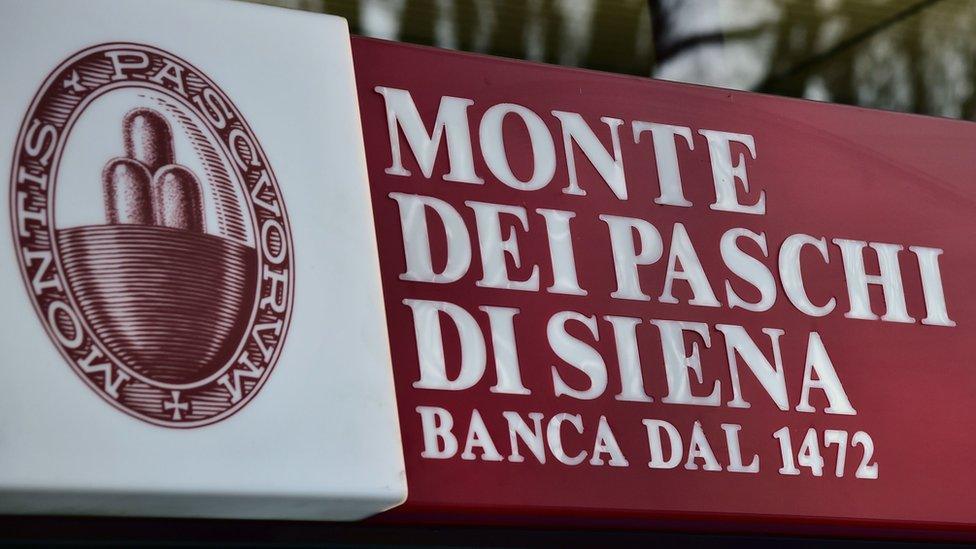
Italy's oldest and third largest bank is saddled with €47bn of non-performing loans
The country's economy is growing slowly, but its banks are struggling with around €360bn (£306bn; $395bn) in bad loans.
Italy's oldest bank, Monte dei Paschi di Siena, is in particular trouble.
Italian bank hit by loan fears
Eurozone rules mean that these banks cannot be bailed out by the Italian state unless their bondholders, or investors, take losses first.
Matteo Renzi has suggested that he will find a way round these rules. Unless he manages to self-demolish beforehand.
- Published1 June 2015
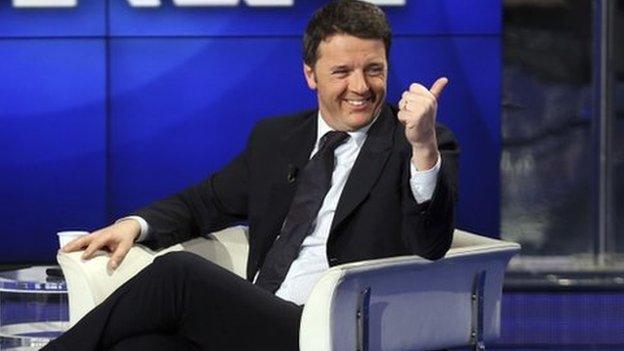
- Published28 June 2016
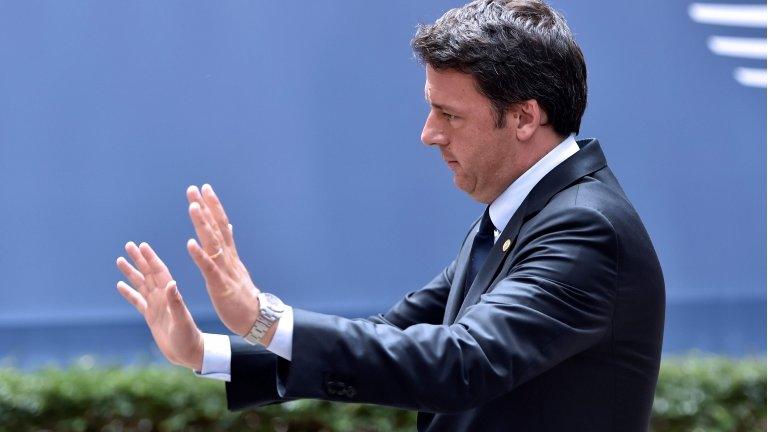
- Published11 May 2016
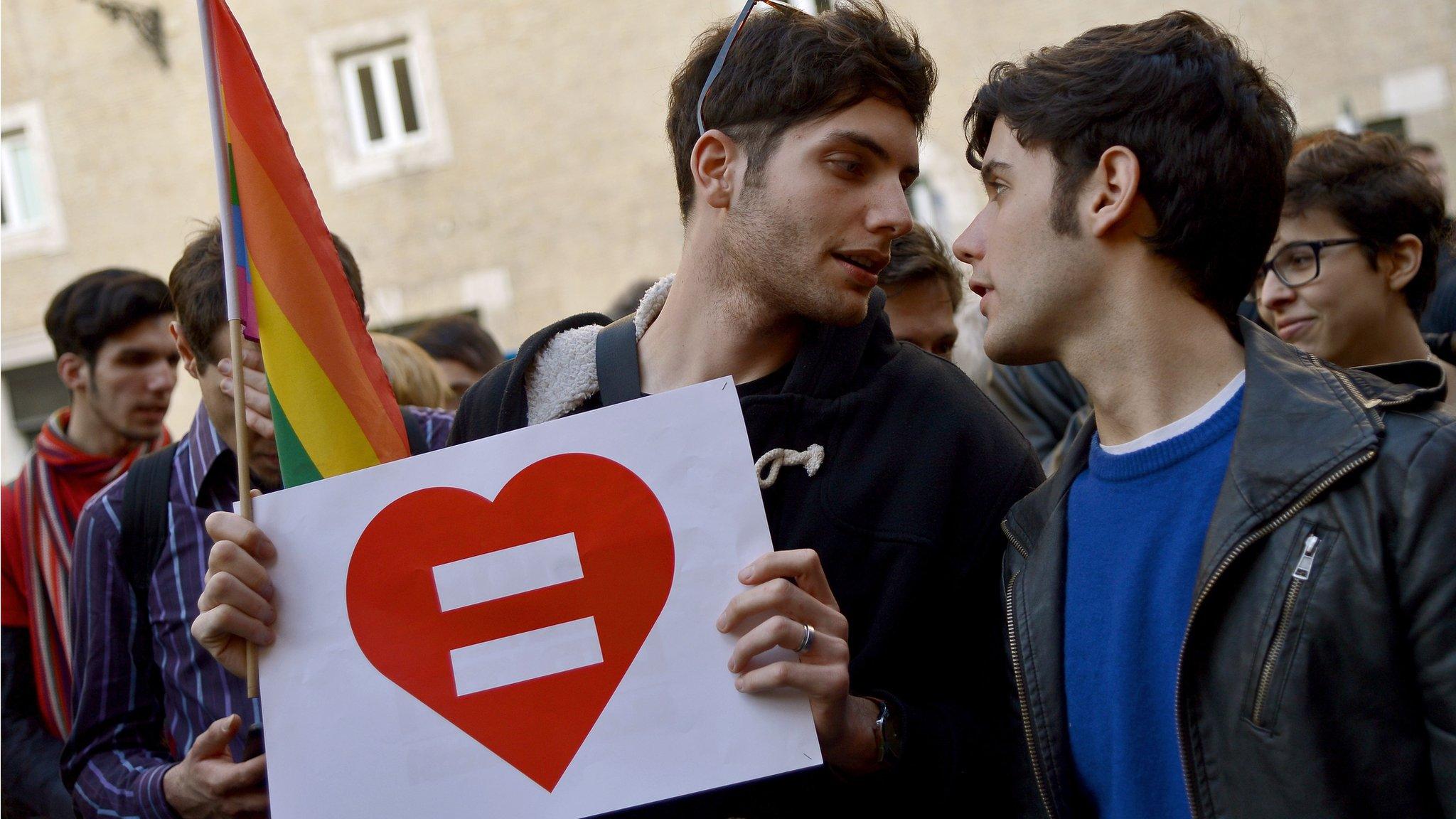
- Published13 October 2015
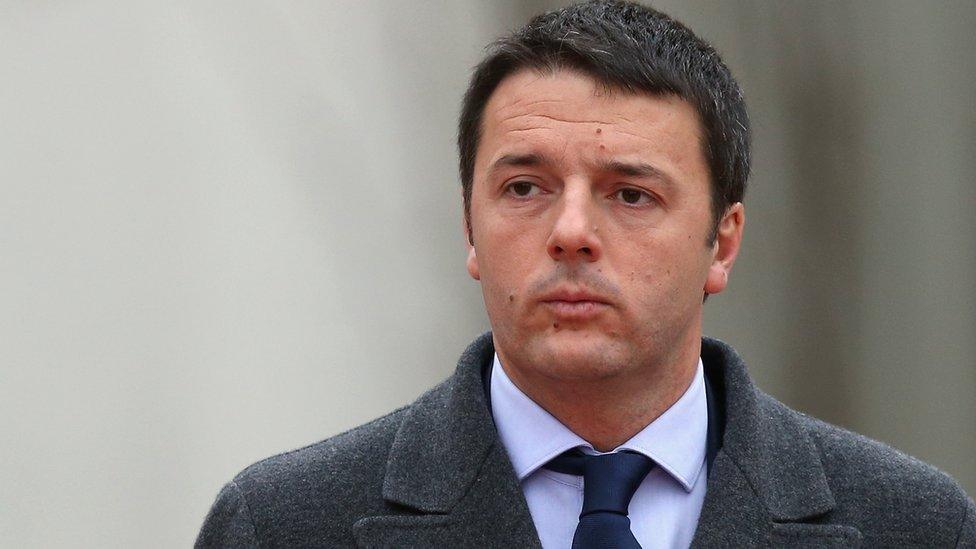
- Published20 June 2016
